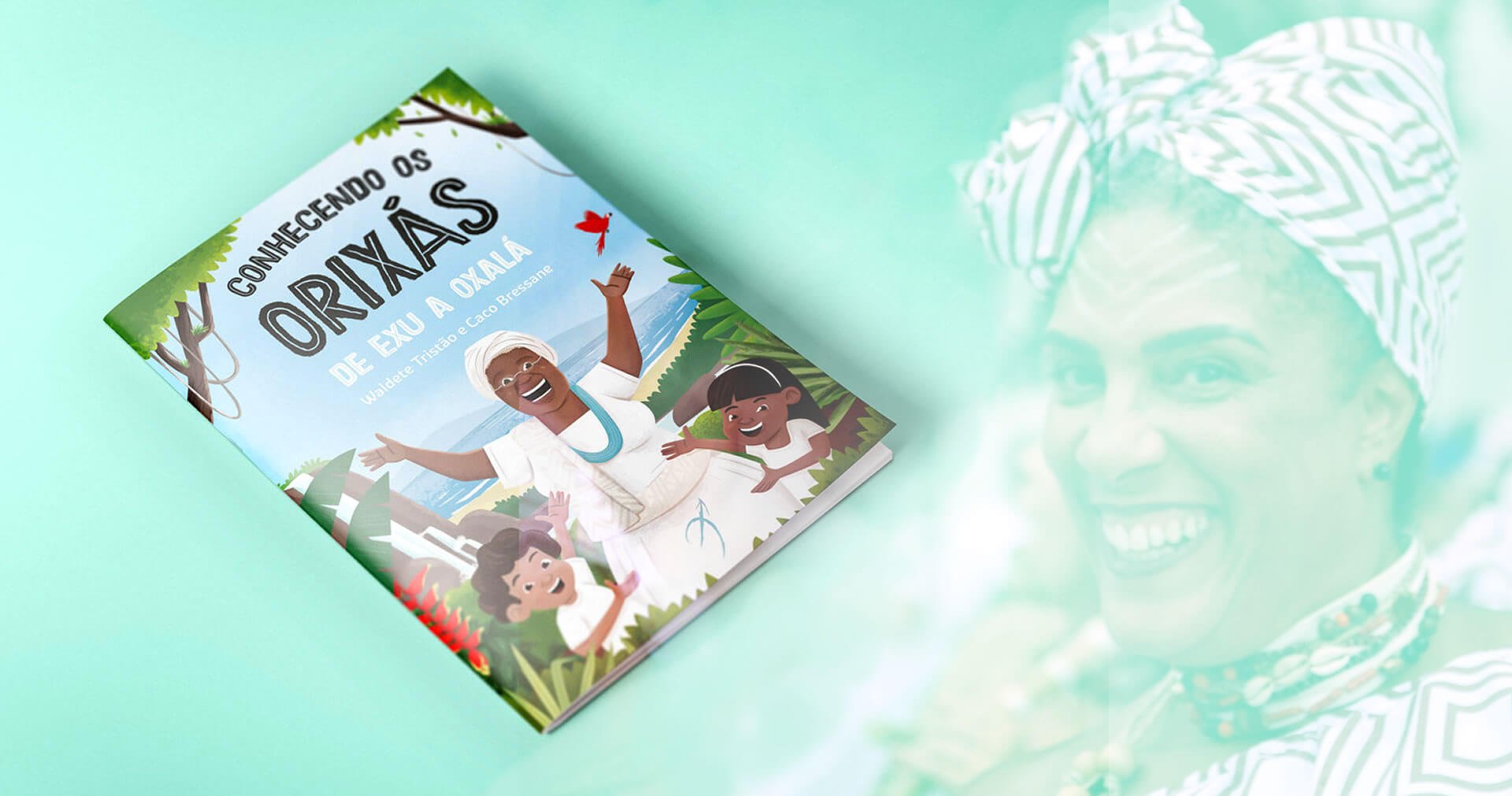Clipping | Children book's author brings African mythology into elementary schools
One of the favorite subjects of children in elementary school is the study of mythologies. In the compulsory curriculum, however, only Greek, Roman, Nordic, Egyptian and Aztec mythologies are included. The lack of knowledge about African mythology calls attention. This is because, according to the IBGE, more than 50% of its population in Brazil is made up of brown and black people.
Thinking about it, Waldete Tristão, Ph.D. in Education at the School of Education of the University of São Paulo (USP) and graduated in Literature and Pedagogy, wrote the children's book Knowing the Orishas, from Eshu to Oshala.
“The book speaks of Orishas on African mythology. The importance of them is exactly that all the Brazilian children of public or private schools have access to this type of knowledge, because other contents, like the Norse mythology are of easy access to the children. The book ends up being a possibility not only for children, but also for adults who did not have the opportunity to access this knowledge”, says the author.
Waldete says that the project came about 12 years ago when his son was still studying Greek mythology: "he did not yet have the opportunity to get to know African mythology, we talked about children having access to them and how important it was to write such a book. I taught what I knew, and we started to establish relationships, comparing Zeus with Shango for example. The project was stopped for a while, then in 2017, unfortunately my son died and I went back to this project”.
Although important, there are few schools that work this type of mythology with their students. She comments that exclusion occurs through the process of "demonization" of African culture: "we live in a racist and prejudiced society. The contents that have to do with the black population end up being taken as of lesser importance. When thinking about the pedagogical project in it is no wonder that African-born religions have been demonized. All content related to African and African-Brazilian history and culture has been rejected by the population”.
The attitude taken by schools reflects a pattern of Brazilian society. According to her, this change has to start from the direction of educational institutions: "professionals in school reflect society. If there is no political commitment from teachers to bring this content into schools, it wont work. Not only of literature but also of cultural manifestations, but also jongo or other types of content and cultural experiences, which are directly linked to African and African-Brazilian culture”.
Although informative, playful and widely used as teaching material in schools, the pedagogue explains that the book was not thought of this way: “it is not a didactic material, although it is extremely suitable for compliance with the law 10.639. [The standard] has changed the National Education Guidelines and Bases Law and says that schools should work with children. This law says that all children in basic education must have access to the contents of African and African-Brazilian history and culture. As my book speaks of Orishas, it becomes a possibility to be a didactic material. Just as children can learn about the Greeks, they can learn about the Orishas", she concludes
The book was published by Arole Cultural, with texts by Waldete and illustrations by Caco Bressane, in 2018. Altogether there are 17 Orishas presented, with their particular characteristics, colors, favorite foods and the force of nature that they command.
By Luiza Vilela; original text in https://www.brasildefato.com.br/2019/05/10/autora-traz-mitologia-africana-para-dentro-das-escolas/


